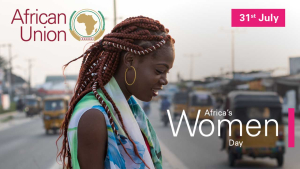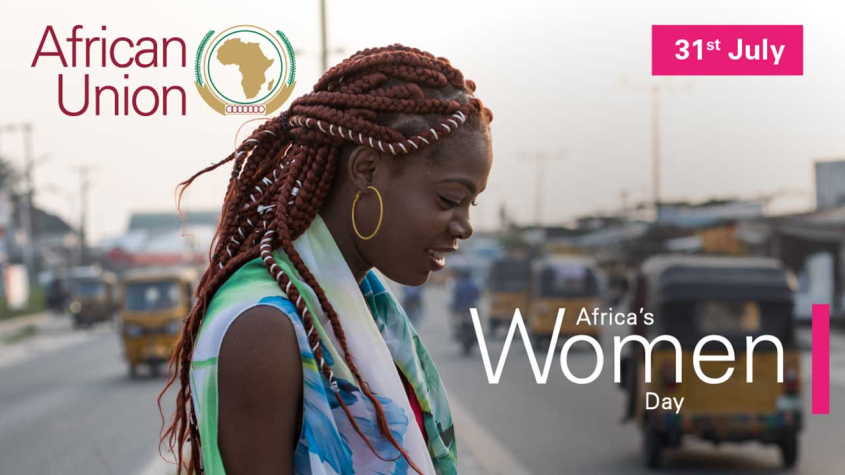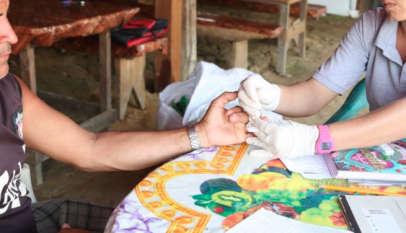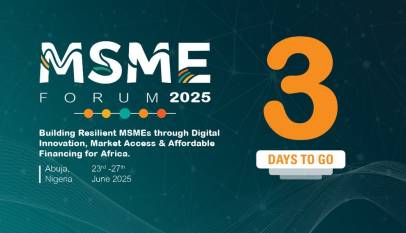BLOG | This Africa Women’s Day, I have questions! So many questions
Nine months before the Organisation of African Unity (OAU) was birthed, the Pan African Women’s Organisation (PAWO) was born on July 31, 1962, to bring together African women’s organizations on a platform for joint action to promote human rights and gender equality.

I bore witness to the day PAWO became an official agency of the African Union, which was only as recently as 2020 under the leadership of the then SG of PAWO, Pinky Kekana, whom I served as an advisor to in her role as Deputy Minister in the South African government at the time. And so PAWO Day became an official African Union Day, known as Africa’s Women’s Day, observed annually on July 31st.
PAWO may not be as visible and profound as it was in its heyday, but it unquestionably inspired many gender equality and women’s organisations across the length and breadth of Africa. The history books and published content in the struggle for decolonization were all written by men, and so history tells the story of Africa’s political liberation mainly through a testosterone lens. The likes of Jean Martine Cisse, Aoua Keita, Adelaide Tambo, Bibi Titi Mohamed, Putuse Apollos, Betty Kaunda and the rest of the Founding Mothers – are not nearly as acknowledged as they should be.
Fast forward to 2018, when the landmark AfCFTA Agreement was signed into effect in what is globally known as Women’s History Month, but once again, this historical document completely ‘left out’ the African woman! In context, by 2018, at this point, we already had the Maputo Protocol, the Abuja Treaty, and even the AU Gender Strategy (now referred to as GEWE), amongst many others. So, why then would the Agreement on the ‘greatest tool to end poverty’ not include or actually prioritize women and youth?
Why?
The African woman and girl-child may today have policies that speak about ‘her’, but for the majority, none of these policies have spoken to ‘her’ or for ‘her’. The AfCFTA, which is now in Phase II of negotiations, is inclusive of women and youth in trade protocol. Once again, there are negotiations happening ‘about us, WITHOUT us’. Most of the people around that negotiation table are either AU policymakers or multilateral organisations – the same multilateral organisations that don’t see fit to have Africa as part of the Security Council, the same which has global calls for their reform because of this exact issue of “about us, without us”.
Where are the women about whom this is actually about? PABWA delivered a policy brief after a 2-year research study of the actual women who this is really about, officially submitting it on August 9, 2022. Almost a year later, the Secretariat has yet to acknowledge the policy brief, which was the largest study done to date. Maybe because PABWA is ‘just’ an African Think Tank, or maybe they are not a Multilateral organization? Either way, the negotiations for the prioritization of women and youth in trade protocol have not been inclusive – or finalized.
When Monday comes, and we all rise under the same African sun on this continent of MOTHER Africa, across borders created by our former colonial masters, speaking the languages of the same colonial masters – let us, as men, women and all genders recognized or unrecognized, fully and holistically understand that we have let down our Founders.
I never use the word ‘celebrate’ when referring to Africa Women’s Day, because for me there is nothing to celebrate – we observe it, see it for all the regression on gender quality, all the opportunities we didn’t take to give women their rightful place, and for all the times women are legally, culturally and socially repressed. I have often wondered why so much effort goes into the repression of a woman if she is ‘less’. But that’s a pondering for another time.
Back to 2023.
The AU Theme of the Year is “Acceleration Of AfCFTA Implementation,” so let’s take a quick look at this year’s Africa Women’s Day through the lens of the theme of the year.
In 2020, at the very same Heads of State Summit that the SG of the AfCFTA was decided upon after an historical 6-round voting process, the Decade of African Women’s Financial and Economic Inclusion was declared by the incoming AU Chair, South Africa’s President Cyril Ramaphosa.
Being in the great hall for those moments in history is actually what inspired my fight ‘for the soul of Mother Africa’ to be given the peace and self-sustainability we as her children deserve, not just want.
Everyone is talking about the AfCFTA today.
I have been actively campaigning for the prioritization of women in the Agreement, since the Wednesday after the SG was appointed. It was one of his first meetings after the announcement, and in no uncertain terms, he was advised that women needed to be more than included; they needed to be prioritized.
With that same passion and commitment, I ask the relevant leadership of our great continent: What do you think about this AfCFTA that everyone is using as a buzzword? HOW do you think it will be successfully implemented without the AU Free Movement Protocol (FMP) being ratified?
How?
Once again, we are faced with a multitude of policies about women and youth inclusion, and lots of ‘talk’ and speeches being made … but honestly, HOW does anyone think this is going to work, if people cannot move with goods and services – HOW?
If the stats are to be believed, then 70% of Africa is an informal economy, and 80% of the informal economy are made up of women. If the AfCFTA is meant for ALL Africans, then HOW are we expecting goods and services to move ‘freely’ but people, women especially – can be harassed, abused, and at the mercy of an unstructured, unregulated and ungovernable environment that most border posts represent for women?
How?
Gosh, I have so many questions.
On that note, I wish all Africans, but especially our policymakers and leaders a thought-provoking and contemplative Africa Women’s Day.














